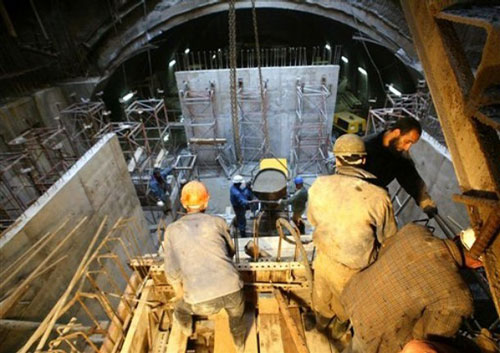 Business & Finance Club - Kuwait City : Kuwait is planning to develop its own rail and metro projects as part of the GCC's wider efforts to improve public transportation networks and also keep pace with its regional counterparts, said an expert.
Huge transportation projects are underway in Kuwait aimed at improving its connectivity with neighbours and cut congestion and traffic problems, according to Oliver Billings, rail manager for Arup, a provider of engineering design, planning and consulting services.
Oliver is one of the regional rail experts who will be speaking at IQPC's Urban Transportation Summit to be held at Movenpick Hotel in Kuwait from October 10 to 13.
'Existing transport infrastructure is limited to the motor vehicle, with journey times severely affected by peak hour traffic. After a number of years of slow infrastructure development, this appears to be changing,' Oliver noted.
He pointed out that the change can be seen in the likes of the Kuwait metro project, which is one of the key pillars of the government's strategy to achieve its goals.
Conceptual studies have been completed for the mass transit system in Kuwait and tenders are currently being assessed by the country's public private partnerships (PPP) body, the Partnerships Technical Bureau, for the role transactions advisor to take the project forward, he added.
According to Oliver, the new public transport system will reach 550km upon completion and will cover the northern and southern parts of the country as well as critical infrastructure such as airports and railway stations.
The successful consortium will have its work cut out for it because of Kuwait's extreme weather conditions and the lack of prior planning within the country's transportation infrastructure, the expert said.
Finding solutions to these issues will be of paramount importance and assessing examples from throughout the region could provide clues as to how similar issues have been overcome.
Such case studies will be investigated along with Kuwait's key transportation projects at IQPC's Urban Transportation Summit, which is being held under the patronage of Kuwait's Ministry for Public Works, Oliver added.
The other issue, he said, which needed to be addressed was overcoming the transition from cars to public transportation, which has been a major problem in this part of the world.
Governments across the GCC have been assessing various strategies to encourage a mode shift towards public transportation, he added.
Oliver said, 'While there was a key role for the private car in future development in Kuwait city, the inherent inefficiency of car-based living in high density urban areas is now a major constraint to future success.'
'Integrated land use and transportation planning must address this in a manner that creates attractive places to live, work and play without dependence on private cars and with excellent provision for mass transit and pedestrian movements,' he noted.
'Policies including parking strategies have an important role to play in supporting the essential investment in public transport,' he added. |